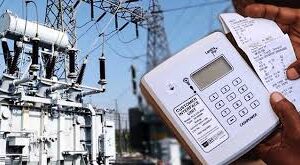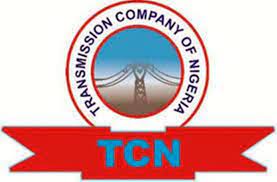Both chambers of the National Assembly Thursday, passed for third reading, N10.594 trillion 2020 budget which indicated an increase of N264 billion on the N10.330 trillion presented to them by President Muhamnadu Buhari for consideration and approval on October 8, 2019.
The N264 billion increase as explained by Chairmen of Appropriation committees in both the Senate and the House of Representatives was arrived at in collaboration with the Executive arising from new windows of revenues discovered to that effect.
Specifically, the Chairman of the Senate Committee on Appropriation, Senator Jibrin Barau, (APC Kano North), in his explanation during lead debate on his committee’s report to the Senate and clarifications later made to journalists after the passage of the budget said the increases made were for interventions in critical areas such as National Security, Road Infrastructure , Mines and Steel Development, Health, Social needs and water provisions.
” This is also in line with the budget thrust of Government which is focused on growing development and sustainable growth,” he said.
But as reflected in the recommendations made by the committees and approved by both Chambers , part of the N264 billion added to the aggregate expenditure profile of the budget , is N3 billion the federal lawmakers added to the earlier N125 billion earmarked for them by the executive under statutory transfers.
However aside the slight increase on the total projected expenditure profile of the budget , all the assumptions , parameters, critical highlights as well as estimates earlier proposed by the executive across the various Sectors , were appropriated for .
The assumptions cum parameters are $57 per barrel oil price benchmark, 2.18 million barrel oil production per day, 2.93% GDP growth rate , 10.81% Inflation rate and N305 to a US dollar as exchange rate.
The critical highlights of the budget are N10.594, 362, 364, 830 trillion out which N560, 470, 827, 235 billion is appropriated for statutory transfers , N4.842, 974, 600, 640 trillion for recurrent expenditure and N2, 465, 418, 006, 955 trillion for capital expenditure.
Others are N2, 725, 498, 930,000 trillion appropriated for Debt servicing, N2.28 trillion for fiscal deficit and 1.52% as deficit /GDP.
Under statutory transfers , the National Assembly appropriated N110 billion for the National Judicial Council as proposed, N80 billion for the Niger Delta Development Commission, N111.789 billion for the Universal Basic Education and Public Complaints Commission N4.7 billion.
Others are N40 billion for the Independent National Electoral Commission , N2.5 billion for National Human Rights Commission , N38 billion for the North East Development Commission and N44.498 billion for Basic Health Care Fund .The ministry of Works and Housing has the highest votes of allocation under capital component of the budget with N315.563 billion , followed by Ministry of Power with N129.082 billion and Federal Ministry of Agriculture and Rural Development with N124.395 billion.
Others are Ministry of Transport N121.366 billion, Ministry of Defence N116.181 billion, Ministry of Education N84.728 billion.
In his remarks after the passage of the budget , the President of the Senate , Ahmad Lawan said, ” when we came in, all of us approved our legislative agenda, and one of the key pillars of this agenda is to take back our budget cycle from the very undesirable cycle that can not be defined to something that can be defined and bought into by our country and business partners living in and outside the country.
“Today, we have been able to achieve this. It means where there is will, there is always a way. This is something that we have been able to achieve together with the House of Representatives.
“I must give members of the Ninth National Assembly the credit, because we thought it was going to be impossible.
“Let me also commend the buying-in of the executive arm of government. When we continued to preach that we have to receive the 2020 budget estimates before the end of September, it was not easy for the executive.
“I know they (Executive) worked day and night. So it was presented to us on the 8th of October. We have been able to work harmoniously. There is no way we can achieve this without all of us working together.
“I want to commend our colleagues from the opposition. This Senate from the beginning, we said, will be bi-partisan. You have given us all the support that we require, and indeed, this is the way it should be.”
He also noted that with the recent passage of landmark legislation such as the Production Sharing Contract (PSC) Act, Finance Bills and Public Procurement Bills by the National Assembly, the Executive arm of government is sufficiently empowered to ensure the successful implementation of the 2020 budget.



